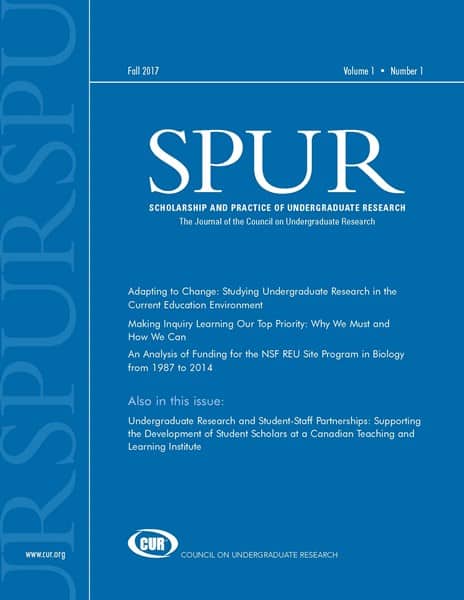SPUR (2017) 1 (1): https://doi.org/10.18833/spur/1/1/1
Using data available at the NSF Search Awards site, Biology REU Site awards made from 1987 to 2014 were analyzed. During this time, there was an average of 30.8 new REU Site awards per year with an average duration of three years. Total funding for Biology REU Site awards increased for each four-year period analyzed since 1995–1998 in actual dollars but has not increased substantially in inflation-adjusted dollars since 2003–2006. Average award funding in inflation-adjusted dollars increased from 1987–1990 to 2003–2006, which reflects the increased duration of awards, and then declined slightly for the 2007–2010 and 2011–2014 periods. Awards have been made to institutions in every state except Wyoming as well as to institutions in Washington, DC, and Puerto Rico. The total Biology REU Site funding per state/location is highly correlated with the state/location population. Awards have been made to 257 institutions and to 480 principal investigators (PIs). Many institutions (33.8 percent) and PIs (56.7 percent) have had only one Biology REU Site award, whereas 10.5 percent of the institutions and 0.4 percent of the PIs have had eight or more awards. Doctoral institutions had the largest percentage of awards (65.5 percent), followed by research institutes, master’s institutions, bachelor’s institutions, medical institutions, associate’s institutions, and tribal colleges. From the 1987–1990 to the 2011–2014 analysis periods, the percentage of awards made to master’s institutions increased from 9.6 percent to 15.3 percent, and the percentage of awards made to bachelor’s institutions decreased from 13.3 percent to 2.1 percent.
More Articles in this Issue
No posts found


